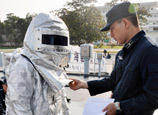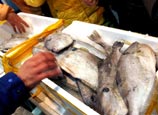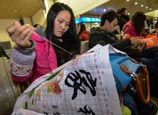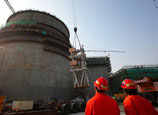
Film 'Return Ticket' tackles tough issue of migrants' mass migration
The annual Spring Festival migration of China (chunyun) has long been regarded as the largest mass migration in the world. But it is not only known for the sheer numbers involved, or the contrast in travel experiences of affluent Westerners headed out for a summer vacation. More and more, it is becoming known for the combat that ensues just to buy a ticket; it's a race against time, computers and peers.
The vast majority of these travelers are migrant workers. They are the principal "combatants" and their Spring Festival migration stories, to some degree, encapsulate current Chinese society. Taiwan director Teng Yung-Shing has captured this point in his new film Return Ticket.
Storyline
After her small clothes shop in Guangzhou, goes bankrupt, Cao Li returns to where she started her career in Shanghai. The life in the ultra-competitive metropolis is difficult, and the old hometown becomes the only place she and some old friends can find comfort. Though their old home in Fuyang, Anhui Province, is only about 300 kilometers away, they can only manage to go back once a year during Spring Festival.
It's near the end of the year, but as usual the migrant workers from Fuyang find it hard to get a return ticket. Gou Ge, a man with an entrepreneurial spirit, gets a bus from a scrap yard. He thinks he can sell return tickets to desperate travelers and make himself a small fortune. Then together with Cao Li, he cheats people into getting on his broken-down bus.
Not what you might think
The first time I heard of the film, I imagined it told of all the hardships migrant workers face as they try to get tickets and push their way onto a train. But Teng comes at it from different angles: no scenes with people carrying tons of luggage or waiting for hours in a long queue. Only through some casual dialogue does the audience hear how hard it is to get a ticket or about paying extra to a scalper.
Teng uses a large part of the film to show how workers from Fuyang squeeze into old, small and gloomy dormitories while working at the very rock-bottom of society. These cleaners, waiters and casual laborers do their utmost to pinch every penny so they can send it back to their children and parents back home. Meanwhile, they are not accepted by the local people and are often despised.
Spring Festival migration, then, is not a mirror showing hardships, but rather a comparison - though it is physically torturous to participate in the mass migration, it's still better than the mind-numbing torture of daily life for many migrant workers.

















 People on way home during Spring Festival travel rush
People on way home during Spring Festival travel rush


![]()
